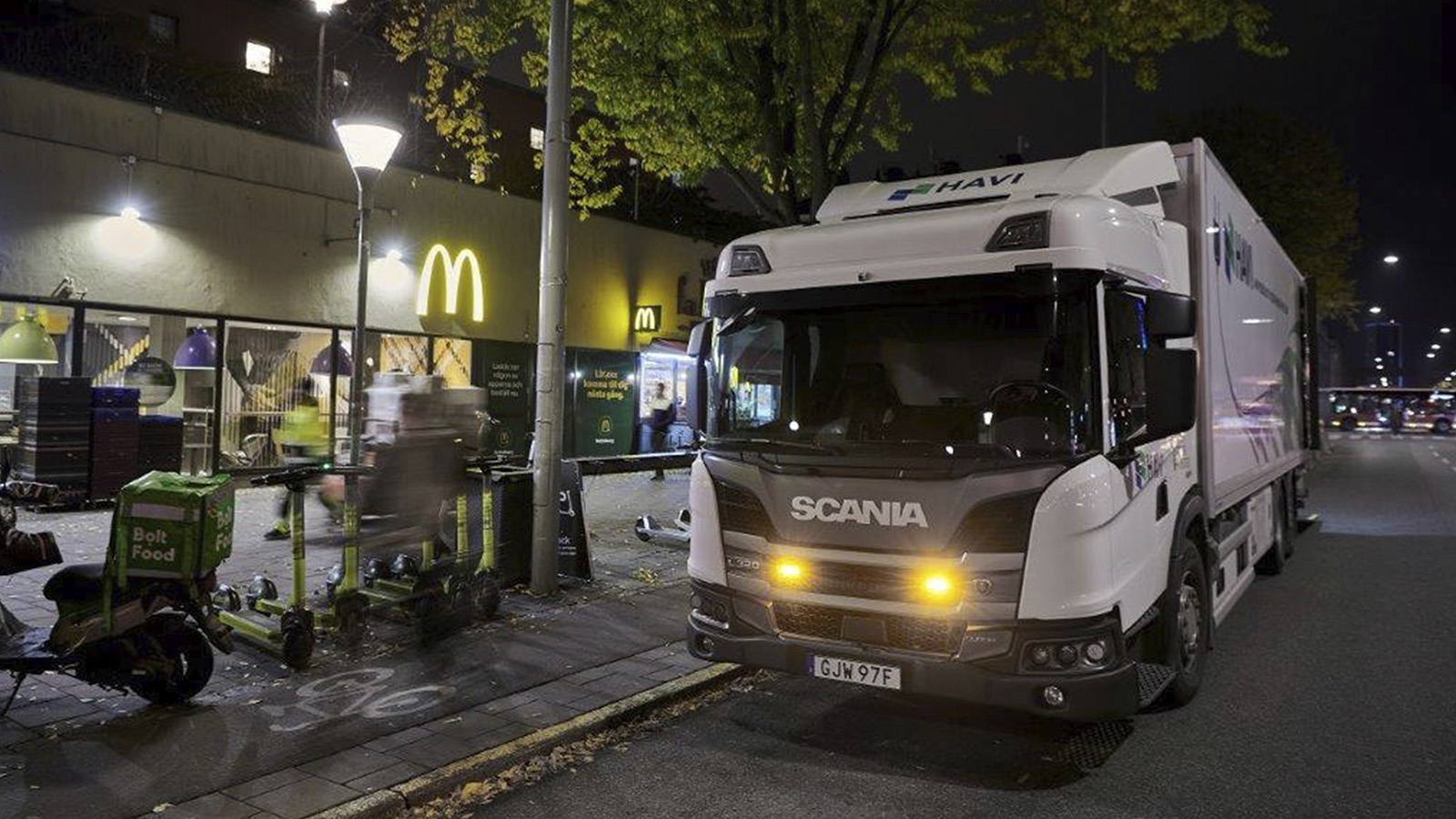The HITS project shows great potential for sustainable urban transport

Cities across Europe aim to reduce street traffic for a better environment and lower climate impact. A research study initiated by Scania within the HITS project, shows that urban transport can be transformed to be quieter and more efficient, reducing the number of delivery vehicles by half through consolidation and shifting goods from vans to electrified trucks.
The four-year HITS project, Sustainable and Integrated Urban Transport System, has collaborated with multiple stakeholders to develop efficient transport solutions for cleaner, safer cities. In Stockholm, pilot studies have explored alternative distribution modes, like off-peak deliveries combined with consolidated goods distribution.
“By also shifting to more off-peak deliveries, we can not only reduce daytime traffic but also enhance efficiency in logistics and cut costs,” says Project Manager Elisabeth Hörnfeldt at Scania’s Innovation Office. “The strength of this project is that we’ve engaged those that have the most to gain. While transport companies may not be naturally inclined to initiate change, involving them in the process and highlighting the potential for greater efficiency and cost savings has helped them recognise the advantages. Together, we can pave the way towards more sustainable cities.”
The benefits of shifting heavy transport to off-peak hours include reduced congestion, improved logistics, and enhanced public spaces and street safety. Electrified heavy trucks reduce noise, allowing for longer operating hours to offset their higher cost.
“We had previously established that off-peak deliveries could be beneficial but with this project we could incorporate several perspectives to gain an overall understanding of all issues,” says Anna Pernestål at KTH Royal Institute of Technology’s Integrated Transport Research Lab in Stockholm. ”Urban centres are complex environments and here we must consider transporters, recipients, goods sellers, municipal authorities and policy makers. It’s these challenges that we’ve further explored. Implementing off-peak deliveries is simple but most often hampered by the need for recipient staff to handle incoming goods. There are technological solutions but we must also consider other issues such as trust.”
Another key finding of the project was that the number of delivery vehicles can be reduced by up to 50 percent by consolidating deliveries and shifting piecemeal goods from vans to trucks, given the low current fill rates.
It was also found that real estate owners play a key role in developing and driving an efficient consolidation service in collaboration with hub operators. Focusing on a downtown area in Stockholm with shops, restaurants, hotels and offices, several businesses changed their delivery location to a suburban consolidation centre with a c/o address.
Despite the benefits for all parties in the delivery chain there is presently a lack of incentives for voluntary coordination amongst transporters. Possible solutions include policy measures and regulations that offer economic or social incentives for transporters to consolidate at a hub.
“The broad collaboration in HITS has contributed towards establishing sustainable urban transport systems,” says Elisabeth Hörnfeldt, “It may not be possible to find a single solution that fits all cities or meets all challenges at the same time. However, the results we have obtained in HITS show that there are several viable solutions for sustainable transport solutions – creating a win-win-win situation for all parties involved in urban transport.”


